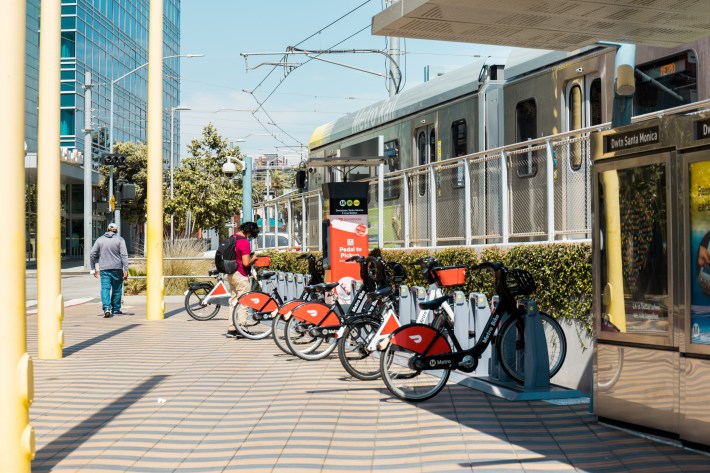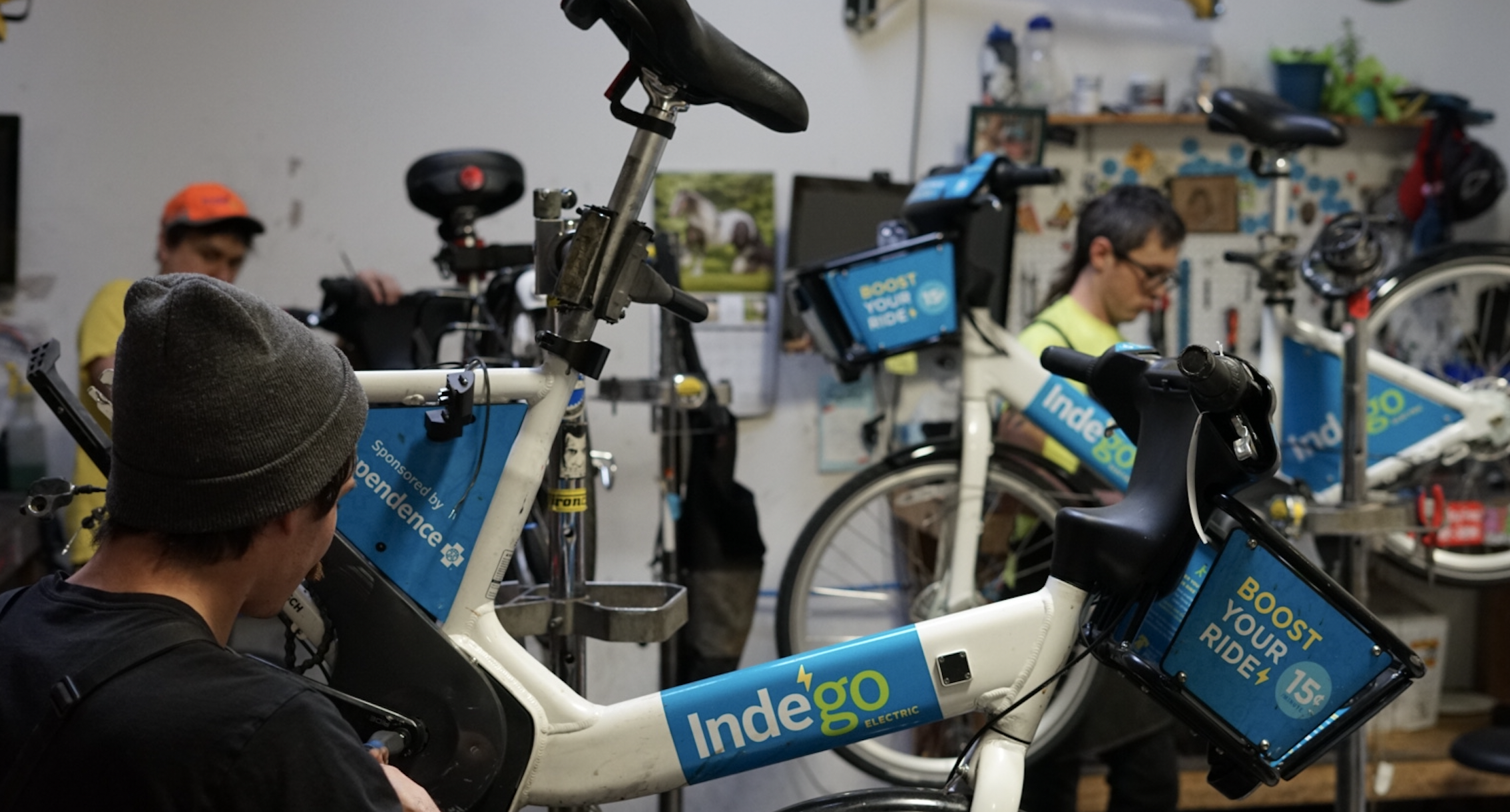It's a big deal.
Bike-share operations provider Bicycle Transit Systems is acquiring BCycle from Trek in a bid to compete with Lyft and become the largest bike-share provider in the country in terms of number of cities served, the company said.
Bicycle Transit's relationship with BCycle goes back nearly a decade — the firm uses BCycle bikes for the three bike-share systems it operates in Los Angeles, Philadelphia and Las Vegas. When the new acquisition finalizes next month, Bicycle Transit will add to its portfolio BCycle's operations in 10 cities and equipment provider deals in 15 others.
Cities with bike-share typically farm out management and operations to outside vendors. Lyft has been the biggest player on the scene, running the country's largest systems including New York, Boston, Chicago and Washington, D.C. The new acquisition gives Bicycle Transit a larger geographic footprint.
By combining manufacturing, operations and public-facing brand, Bicycle Transit-operated systems will also use fewer subcontractors than Lyft, which has bike manufacturing, software and product development under its purview, but still contracts out to third parties for day-to-day operations.
The new integrated model will give American cities another option to Lyft's bike-share product — one that Bicycle Transit founder Alison Cohen believes will be a more "nimble" and cost-effective alternative with fewer middlemen.
"Every time you have subcontractors, everyone on every level has to ... be financially stable and make a profit," Cohen told Streetsblog. "By taking out some of those internal profit centers, we're able to be more flexible about how we're providing product and what pricing we can provide to cities who might be buying equipment or the software.
"Any time you're getting another layer of management and decision making and profit center out of the equation, it's better for the consumer," she added.
Cohen launched New York City's Citi Bike and Washington D.C.'s Capital Bikeshare as one of the founders of Alta over a decade ago. Alta eventually became Motivate, parts of which Lyft purchased in 2018 and parts of which remain independent to this day.
Lyft runs bike-share systems in seven cities, but contracts out to Motivate and others for operations. Whereas Lyft's largest bike-share system, in New York City, has tens of thousands of bikes, Bicycle Transit's biggest operation, in Philadelphia, has a fleet size of just 2,800.
Like Lyft, Cohen hopes to integrate Bicycle Transit's bike-share stations into cities' electrical grids to bring down the cost of high-demand e-bikes, which she called "the greatest thing to happen in bike-share."
Cost-conscious bureaucrats may wind up preferring Bicycle Transit — which unlike Lyft does not have a car-sharing component to its business model, Cohen said. Also, unlike Lyft, Bicycle Transit has private ownership — meaning it has no obligation to make money for shareholders, by Cohen's telling.
Many bike-share companies have come and gone in recent years, but Bicycle Transit's slow growth has help it stay in business — which Cohen said should give governments peace of mind that her firm won't pull out of cities due to financial struggles, as Lyft has done in Minneapolis-St. Paul and Denver.
"We're a private company, so I don't have, you know, public shareholders to answer to. As long as we're financially sustainable, we can choose where to invest," Cohen said. "It's really healthy for the industry to have another large, viable competitor that's ... invested in and committed to bike share for the long term."
Marcel Moran, Faculty Fellow at NYU's Center for Urban Science & Progress, agreed that having options helps all cities, no matter which vendor they choose.
"One of the biggest problems with public procurement is what you'd call 'regulatory capture,' where, effectively, a government in its bidding process has basically one concessionaire to work with," Moran said. "That tends to work out really poorly. You lose all the kind of incentives for the company to innovate and keep prices low, that type of thing."

Moves by both Lyft and Bicycle Transit towards "vertical integration" help the companies run more seamless and effective systems, Moran said. For Bicycle Transit, the shift could help the company "scale up" operations.
"You have to imagine that ... there's economies of scale with this in terms of product," he said. "So if there are improvements in hardware, that's something that can now be [made] to all these different systems at once."
Jeff Olson, one of Cohen's fellow Alta co-founders, who now works in e-bike charging at re:Charge, said the acquisition of BCycle "could create a lot of interesting opportunities" for cities and bike-share users alike.
"This is a chance to see a system that's been around for a while and an operating company that's been around now try to integrate those ideas and create greater better reliability, more usable systems and, hopefully, more people riding bikes," Olson said.
Giving cities multiple bike-share options will push the various companies on the bike-share scene to innovate, Olson said.
"If we do have monopoly situations — and we've seen that in so many industries, whether it was mobile phones or others — that has not continued to lead to ongoing improvement," he said. "It may lead to stability for a while, but at some point we need to keep improving."






